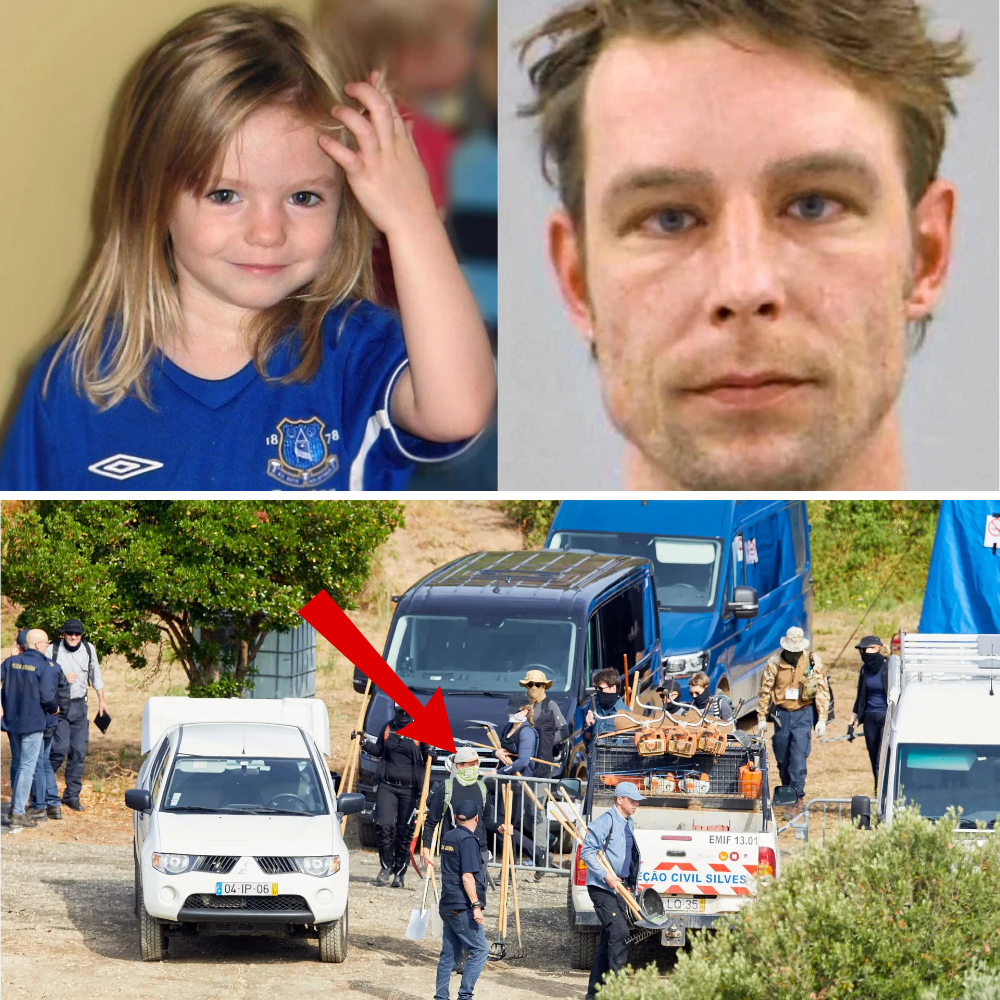
On a fateful night in May 2007, three-year-old Madeleine McCann vanished from her family’s holiday apartment in Praia da Luz, Portugal, sparking one of the most perplexing and widely publicized missing-person cases in modern history. For nearly two decades, the disappearance of the British toddler has haunted investigators, captivated the global public, and left her parents, Kate and Gerry McCann, in a relentless search for answers. Now, in a dramatic turn of events, a midnight confession from the prime suspect has sent shockwaves through the case, upending long-held assumptions and plunging the investigation into deeper uncertainty.
The Madeleine McCann case began under seemingly idyllic circumstances. The McCann family, along with friends, was enjoying a vacation at a resort in the Algarve region. On the evening of May 3, 2007, Kate and Gerry left Madeleine and her younger twin siblings asleep in their ground-floor apartment while they dined with friends at a nearby restaurant, approximately 55 meters away. The parents took turns checking on the children, but when Kate returned at around 10:00 PM, she found Madeleine’s bed empty and the window wide open. The discovery triggered an immediate and frantic search, with local police, resort staff, and volunteers scouring the area. Despite these efforts, no trace of Madeleine was found, and the case quickly escalated into an international mystery.
Early investigations explored multiple theories. The Portuguese police initially suspected a kidnapping, focusing on local individuals, including Robert Murat, a British-Portuguese man living near the resort. However, no evidence linked him to the crime, and he was later cleared, even receiving compensation for reputational damage. Suspicion briefly fell on Kate and Gerry McCann themselves, fueled by inconsistencies in their statements and the discovery of blood traces in their rental car by sniffer dogs. Yet, DNA tests proved inconclusive, and the McCanns were formally cleared as suspects in July 2008. Other theories ranged from an opportunistic burglary gone wrong to organized abduction by a criminal network, but none yielded definitive answers.
In 2020, a significant breakthrough emerged when German authorities identified Christian Brueckner, a convicted sex offender with a history of burglaries and drug offenses, as the prime suspect. Brueckner, who lived in the Algarve between 1995 and 2007, had a criminal record that included sexual offenses against children. Investigators revealed he had been near Praia da Luz at the time of Madeleine’s disappearance and had made a suspicious phone call an hour before the incident. German prosecutors classified the case as a suspected murder, stating they believed Madeleine was dead, though they lacked conclusive evidence to charge Brueckner. The announcement reignited hope for closure, with the McCanns expressing cautious optimism about the development.
Fast forward to August 2025, and the case has taken an astonishing twist. In a late-night interrogation session, Brueckner reportedly altered his account of events, delivering a statement that investigators described as both shocking and disorienting. While details of the confession remain closely guarded, sources indicate that Brueckner’s revised narrative contradicts earlier claims, introducing new elements that challenge the timeline and circumstances surrounding Madeleine’s disappearance. This unexpected shift has forced authorities to reevaluate evidence, revisit witness statements, and explore previously dismissed leads, significantly complicating an already intricate investigation.
The reasons behind Brueckner’s change of story are unclear. Some speculate it could be a calculated move to sow confusion, delay legal proceedings, or negotiate leniency in other pending cases against him. Brueckner is currently imprisoned in Germany for unrelated charges, including the 2005 rape of a 72-year-old woman in Praia da Luz. His history of manipulating legal processes—such as appealing his convictions—suggests a pattern of strategic behavior. Others believe the confession might reflect a genuine attempt to unburden himself, though skepticism remains high given his criminal background.
The impact of this development on the McCann family cannot be overstated. Kate and Gerry have endured relentless scrutiny, false accusations, and the emotional toll of an unresolved tragedy. Through their “Find Madeleine” campaign, they have raised millions to fund private investigations, maintaining hope despite repeated setbacks. The couple issued a statement acknowledging the latest twist, expressing gratitude for ongoing efforts but refraining from commenting on specifics. Their resilience in the face of this new uncertainty underscores their unwavering commitment to uncovering the truth about their daughter’s fate.
The public’s reaction has been equally intense. Social media platforms, particularly X, have exploded with speculation, ranging from theories of extraterrestrial involvement to accusations of a cover-up. The case’s global profile—amplified by extensive media coverage, celebrity endorsements, and even papal support—has kept it in the spotlight. Documentaries, books, and podcasts have dissected every detail, yet the mystery persists, fueled by moments like this latest revelation. The lack of concrete answers has only deepened the public’s fascination, with many clinging to hope that Madeleine, now approaching what would be her 22nd birthday, might still be alive.
Investigators face a daunting task. The new information requires cross-referencing with existing evidence, including phone records, witness testimonies, and forensic data from the original crime scene. The passage of time has complicated matters, with memories fading and physical evidence potentially degraded. Moreover, the international scope of the case—spanning Portugal, Germany, and the UK—demands coordination among multiple agencies, each with its own protocols and priorities. The German police, leading the current investigation, have emphasized their commitment to pursuing every lead, but they caution that the process will be time-consuming.
The broader implications of this development extend beyond the case itself. It highlights the challenges of investigating high-profile crimes over extended periods, particularly when evidence is scarce and public pressure is immense. The Madeleine McCann case has exposed flaws in early investigative efforts, such as the Portuguese police’s failure to secure the crime scene adequately, and raised questions about the balance between media involvement and judicial integrity. It also underscores the emotional weight borne by families caught in the limelight of unresolved cases, where every new lead reopens old wounds.
As the investigation pivots to accommodate Brueckner’s altered testimony, the world watches with bated breath. Will this confession finally unlock the truth about what happened to Madeleine McCann, or is it another false dawn in a case defined by dead ends? For now, the mystery endures, a poignant reminder of the fragility of safety and the enduring power of hope. The McCanns, the investigators, and millions around the globe share a common goal: to uncover the fate of a little girl whose disappearance changed countless lives forever.





